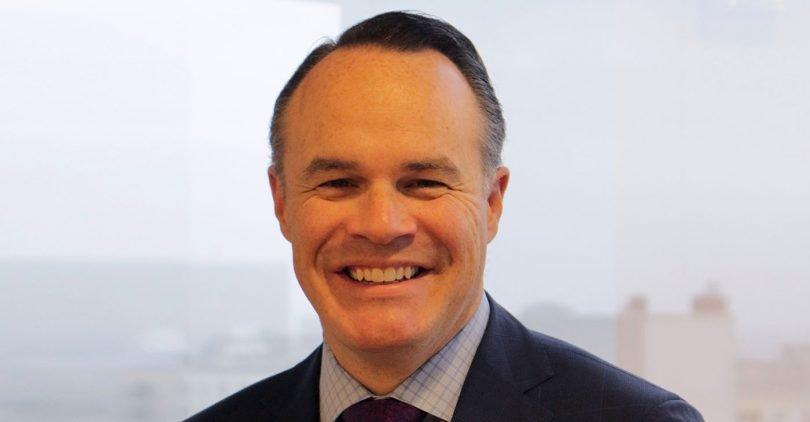
Oil and Natural Gas Industry is Ripe with High Paying Opportunities for Minorities
by Stacy M. Brown, NNPA Newswire Correspondent@StacyBrownMedia 04/18/2019
Under the guidance of president and CEO Mike Sommers, the American Petroleum Institute continues to make strides toward changing the landscape by putting in place strategic and definitive initiatives that address diversity and inclusion.
In a year when the American Petroleum Institute (API) marks its 100th anniversary, the oil and natural gas industry continues to look towards the workforce of the future nationally and globally that will emphasize the inclusion of African Americans, Hispanics and other minorities.
API, America’s largest trade association for the oil and natural gas industry, is working diligently to encourage minorities and women to become petroleum engineers, geologists, welders, electricians, accountants, business managers and to secure other high-paying and family-sustaining jobs that have routinely gone to white males.
Under the guidance of President and CEO Mike Sommers, the Institute continues to make strides toward changing the landscape by putting in place strategic and definitive initiatives that address diversity and inclusion.
For his part, Sommers has brought two decades of political experience to API, including his role as president and CEO of the American Investment Council (AIC), an advocacy and resource organization established to develop and provide information about the private investment industry and its contributions to the long-term growth of the U.S. economy and retirement security of American workers.
Prior to joining the AIC in 2016, Sommers served as Chief of Staff to Speaker of the House John A. Boehner (R-OH) and in other capacities in House leadership for more than a decade.
A Naperville, Ill., native and graduate of the honors program at Miami University in Oxford, Ohio, Sommers served at the center of nearly every major policy decision in the last decade.
He successfully negotiated bipartisan achievements on landmark legislation, including the Trouble Asset Relief Program in 2008, the resolution of the fiscal cliff in 2013, the Bipartisan Budget Agreement of 2015 and trade promotion authority in 2015.
Sommers also served as Special Assistant to the President at the National Economic Council at the White House in 2005.
In an exclusive joint interview with the National Newspaper Publishers Association and the National Alliance of Hispanic Publications, Sommers detailed how the country’s natural gas and oil industry plays a central role in the U.S. economy – supporting 10.3 million jobs and keeping energy affordable for families and businesses.
Studies have revealed that the industry will realize close to 1.9 million new job opportunities by 2035, with hundreds of thousands of them projected to be filled by African American and Hispanic workers, he said.
“America’s natural gas and oil industry is committed to meeting and exceeding those projections, ensuring job opportunities reach every community – because we know a diverse workforce is essential to fostering the innovation and collaboration we need for a stronger industry, and a stronger country,” Sommers said.
The half-hour question and answer session revealed Sommers’ and API’s vision going forward.
NNPA: What are the top facts that you’d like the public to know about the natural gas and oil industry?
Sommers: The first thing the public needs to know about the oil and natural gas industry is that it supports 10.3 million jobs in this country.
The other thing is that while energy production has gone through the roof over the course of the last many years, our emissions [in America] have gone down. In fact, the United States now has the cleanest air in a generation, while worldwide emissions have gone up 50 percent.
That’s really thanks to the innovation that has occurred in this industry.
While in this country, costs continue to go up for education, health care and housing, household energy costs have gone down 10.5 percent in the last ten years and that’s truly because of the innovation and work this industry has done to make sure consumers have access to reliable, affordable and sustainable energy.
NNPA: What are some of the ways the industry is reducing its environmental impact?
Sommers: The environmental issue is one of the top issues we deal with on a daily basis in this country.
This industry has reduced our environmental footprint not just from the perspective of the emissions reduction… A whole generation of change has resulted in cleaner air in this country and that’s something we’re very proud of.
In addition, we’ve reduced the environmental impact in places where we actually produce this energy.
Over the last 20 years, we’ve reduced the size of well pad by almost 90 percent and that’s good for the environment, good for American production and good for the American consumer.
NNPA: Currently, the unemployment rate among African Americans is nearly twice as high as that of the white labor force, while the median income for African Americans is approximately half as much as whites.
Similar stats are true for the Hispanic community, so what can API do to change that dynamic within the oil and natural gas industry and help ensure that these communities hear about opportunities in your industry?
Sommers: This industry currently supports 10.3 million jobs but that is only going to grow as the energy revolution in this country continues to expand.
We’ve done numerous studies on this and we actually expect that much of the new labor force coming into this industry is going to be supplied by African American and Hispanic workers.
What we’re doing is working very closely with our industry partners, particularly with the Congressional Black Caucus Foundation and the Congressional Hispanic Caucus Institute to make sure that black and Hispanic workers in the industry know what those opportunities are.
So, we’re working very closely with others in the industry as well to make sure folks understand where they can get these great paying jobs; these are middle-class sustaining jobs and jobs that will supply the workforce for the future.
NNPA: Do you have any advice for young people who are thinking about pursuing a career in STEM or the natural gas and oil industry in general?
Sommers: STEM education is key. We have a number of partner organizations in this field where they’re helping to ensure that young Hispanic and African American students have access to a STEM education.
That’s not the only place where you can have an entry point into the oil and natural gas industry. This is an industry that needs all kinds of workers; many of our companies are competing with people like Google and Facebook and folks within Silicon Valley, so STEM is important but those are not the only jobs.
We need welders, pipe fitters and we partner with unions like the North America’s Building Trades Unions to make sure there’s training for new employees in this industry, so they understand how important safety is and they get the skills they need so they’re ready for this highly-trained workforce.
We need everyone from scientists to engineers, but that they understand how important putting a hard hat on is and getting ready for this workforce.
Those are the employees this industry needs, particularly as this energy revolution continues to grow in the United States.
Sommers: Again, these are family sustaining wages. In this industry [the requirement of a college degree] is simply not true. Of course, if you want to be an engineer, scientist or geologist, that will require higher education, but we also have training programs that we built out with the Building Trade unions where you can get an 8-week certificate from the unions and you can become a welder in some of the most prolific oil and natural gas basis in this country almost immediately.
These are jobs you can get right out of high school. We are building a workforce for the future and they are paying great wages.
NNPA: What are the top policies you’re advocating to ensure affordable energy and job opportunities?
Sommers: The two key, big priorities this year are that we need Congress to work on an infrastructure bill so that we can build infrastructure to support the energy revolution that’s going on in this country.
So, infrastructure is key; the other thing we need is to make sure that we have markets for these products that are being produced with American resources. So, we need access to pipelines and make sure that the infrastructure is in place.
We also need markets for our products and that means the passage of the United States-Mexico-Canada Free Trade Agreement which is a key priority of this Congress and this president that has to get done as quickly as possible.
We expect that in this workforce of future, African Americans and Latinos will supply almost 40 percent of the workforce.
That’s the reason these training programs and partnerships that we’ve built over time are going to continue to be key components of our advocacy to make sure that the workforce that we supply to the American consumer is safe, reliable, affordable and sustainable energy.
Website Tags and Keywords:
Stacy M. Brown, American Petroleum Institute (API), 100th anniversary, oil and natural gas industry, new standards nationally and globally, African Americans, Hispanics, minorities, API, America’s largest trade association for the oil and natural gas industry, working diligently to encourage minorities and women, petroleum engineers, geologists, welders, electricians, accountants, business managers, high-paying, family-sustaining jobs, Mike Sommers, strategic and definitive initiatives, American Investment Council (AIC), U.S. economy, retirement security, American workers, Chief of Staff to Speaker of the House John A. Boehner (R-OH), Miami University, Oxford, Ohio, landmark legislation, Trouble Asset Relief Program, National Newspaper Publishers Association, National Alliance of Hispanic Publications, natural gas and oil industry, supporting 10.3 million jobs, Worldwide emissions, cleanest air in a generation, environmental impact, environmental footprint, emissions reduction, unemployment rate among African Americans, Congressional Black Caucus Foundation, Congressional Hispanic Caucus, black and Hispanic workers, STEM Education is key, Hispanic and African American students, Google, Facebook, Silicon Valley, welders, pipe fitters, National Building Trades unions, scientists to engineers
Hashtags:
@StacyBrownMedia @APIenergy @NNPA_BlackPress @NAHPinc #STEM @APIGlobal @API_News #MikeSommers


